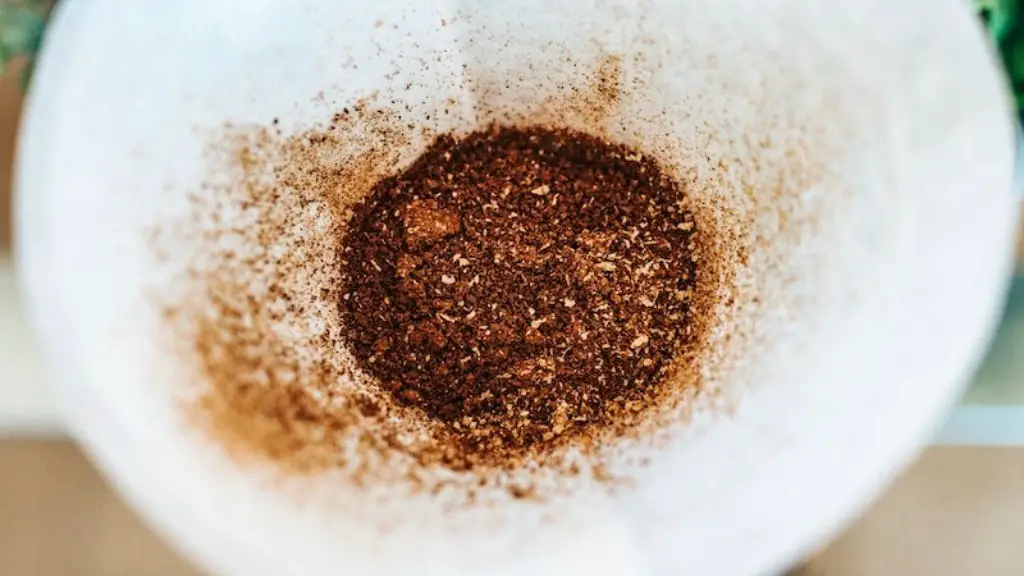Are you an avid runner? Do you enjoy an energizing cup of coffee to get you through your early morning workouts? It’s not uncommon to hear the suggestion that pre-run java is a go-to source of energy, but much of the research available today disagrees. While a cup of coffee can give you a much-needed boost, it may be a better idea to wait and drink it after your run.
Upon ingestion, caffeine is quickly absorbed into the bloodstream and can stay in the body for up to 6 hours. This makes it a very popular stimulant for many athletes, as its effects reach far beyond the moments we take it in. In particular, the ingestion of caffeine will cause the body to increase its production of noradrenaline, one of the primary hormones of stress. This is helpful with activities that require short-term alertness, but can be detrimental to long-term performance. This is particularly important to remember when it comes to exercise; shorter runs may benefit from caffeine consumption, but before longer runs it is wise to avoid it.
To understand why this is so important for longer runs, it is crucial to recognize exactly how caffeine affects the body. When ingested, it begins to block the adenosine receptors in the brain. Adenosine is responsible for telling the body to slow down and rest. By blocking its signals, the brain is tricked into a state of alertness.[1] It is no wonder why so many athletes reach for a cup of coffee before a workout: it activates the body’s “fight or flight” response, making immediate physical activity more desirable.[2]
However, this surge of energy is unsustainable beyond a certain point. After an hour or so of exercise, the body will enter a state of fatigue, as it will be sending signals to the brain in need of rest.[3] It is at this point that the blocked adenosine receptors make it more likely to become physically exhausted.[4] Coffee consumption before a long-distance run may actually put the body at a disadvantage, as it prevents the body from recognizing the need for rest and may lead to dehydration or further fatigue.[5]
Although research suggests that consuming caffeine before a run—particularly a long-distance one—may be counterproductive, some light coffee intake with a proper nutrition plan throughout the run has been known to be beneficial. In fact, some trials have indicated that as little as 2 milligrams of caffeine per kg of body weight could be beneficial for an 18 km run in minimally trained individuals. However, this should not be seen as a green light to consume coffee before a long-distance run, as more research needs to be conducted before any concrete conclusions can be made. When it comes to caffeine and running, the safest advice is to stay away from it prior to longer distances.
Different Kinds of Coffee
Caffeine intake is not just limited to drinking coffee, as many people may also enjoy pre-workout energy drinks, tea and other sources of caffeine. While the effects of coffee on physical and mental performance have been heavily studied in recent years, the link between tea and athletic performance is still relatively unexplored.[6]
A cup of coffee can contain anywhere from 95 to 200 milligrams of caffeine, which is roughly the amount one would drink in an eight ounce cup. Tea, on the other hand, can contain around 80 milligrams of caffeine in an eight ounce cup and energy drinks can contain somewhere between 50 to 160 milligrams per can.[7] In the end, it’s best to remember that any form of caffeine is a stimulant and can be taxing on the body if consumed right before a long-distance run.
At the same time, it’s important to consider the individual when it comes to caffeine intake. Too muchcaffeine can lead to dehydration and can be very dangerous, especially for minors. As a result, athletes should always be mindful of their individual caffeine tolerance and only consume an amount that is not uncomfortable to them.[8]
Sport Drinks
Some people may opt for an alternative method for staying hydrated and energizedduring long runs. Instead of coffee, some athletes may chose to bring along a sport drink. However, this can be a risk as well, as sports drinks are mostly composed of high levels of sugar and electrolytes. This type of drink will be effective in replenishing the athlete’s energy, but can lead to dehydration as well as people likely feeling bloated or too full during their runs. It’s best to consume these drinks in moderation, especially if an athlete is planning on running for more than two hours.[9]
Additionally, athletes should consider the type of sport they are engaging in. Some sports drinks are specifically made for different physical activities such as swimming or cycling, and athletes should only invest in the type of sport drink that is best for their sport. Additionally, some sport drinks may also contain small amounts of caffeine, which can make them a good choice for athletes who may be sensitive to the effects of caffeine but still need a bit of a boost.
Hydration
It is also important to factor in proper hydration when it comes to running long distances. Caffeine is a diuretic, which means it can cause dehydration if it is consumed in excessive amounts. Athletes should take precautions during their runs and make sure they are taking in plenty of water or other hydrating beverages throughout their runs. Too little water can lead to exhaustion and overheating, and too much can be just as detrimental. Keeping an eye on the weather conditions and drinking at regular intervals will help runners find their ideal hydration level and keep them performing their best.
Nutrition
Another important aspect to consider when running long distances is the importance of pre- and post-run nutrition. Consuming the right food and drinks before a long-distance run can prevent fatigue, improve endurance and speed up recovery. Eating complex carbohydrates such as oats and whole grains will provide the body with a steady stream of energy, while snacking on some easy-to-digest protein, such as yogurt and boiled eggs, can also be beneficial. Additionally, runners may wish to supplement their diet with electrolytes such as potassium and sodium in order to maintain their energy levels.
The post-run recovery meal is equally as important as the pre-run meal. Eating smaller, healthier meals such as fruits and vegetables will help replenish the body after a long run. Additionally, some athletes may choose to add a supplement to their post-run meal, such as a protein shake, in order to rebuild and repair the muscles used during a run. Proper nutrition and hydration are key to getting the most out of a long-distance run.
Sleep Patterns
Lastly, an important factor to factor in when running long distances is the quality of an athlete’s sleep. Getting enough sleep is essential to an athletic performance and often times affects an individual’s energy levels during a workout. If a person is not getting enough sleep, they may not be able to perform to their full potential and will likely feel fatigued before or during their run.[10] In order to make sure the body has enough energy for a long-distance run, make sure to get enough rest and sleep the night before.
Benefits Of Coffee After A Run
Despite the potential risks associated with consuming caffeine before a long-distance run, it is still a viable option for many athletes. Some studies have even shown that post-workout caffeine consumption can help speed up recovery time, meaning that athletes may benefit from drinking a cup of coffee after a run.
Additionally, caffeine can provide athletes with a variety of other benefits. After a run, some athletes may appreciate the energy boost and anti-inflammatory effect that is often associated with caffeine consumption. Caffeine has also been known to provide athletes with a much-needed mental boost, improving mental alertness and focus. For those athletes who are looking for a bit of a pick-me-up after their run, a cup of As soon as athletes stop running, the body will naturally produce adenosine, telling the body to rest. Ingesting caffeine afterward can help block these signals, allowing the body to recover while still remaining alert and focused.[11]
Caffeine can still provide some benefits before a run, although there may be better alternatives. For example, some athletes may benefit from consuming a light snack before their run in order to provide them with some energy without the risk of dehydration or fatigue. Additionally, athletes may also benefit from consuming complex carbohydrates up to two hours before an intense run as a source of energy. Ultimately, the decision ultimately lies in the individual athlete, and they should take into account their own physical abilities and build a nutrition and caffeine plan that works for them.
Conclusion
Ultimately, the decision to consume caffeine before or after a run is up to the individual athlete. While drinking coffee prior to a long-distance run can provide a brief burst of energy, it can also lead to dehydration or further fatigue. Instead, athletes may opt to consume a light snack or sport drink before their run or, if they are feeling particularly sensitive to caffeine, to wait until after their run to have a cup. By taking into account their own needs and physical abilities, athletes can create a nutrition and caffeine plan that works for them and helps them reach their running goals.




